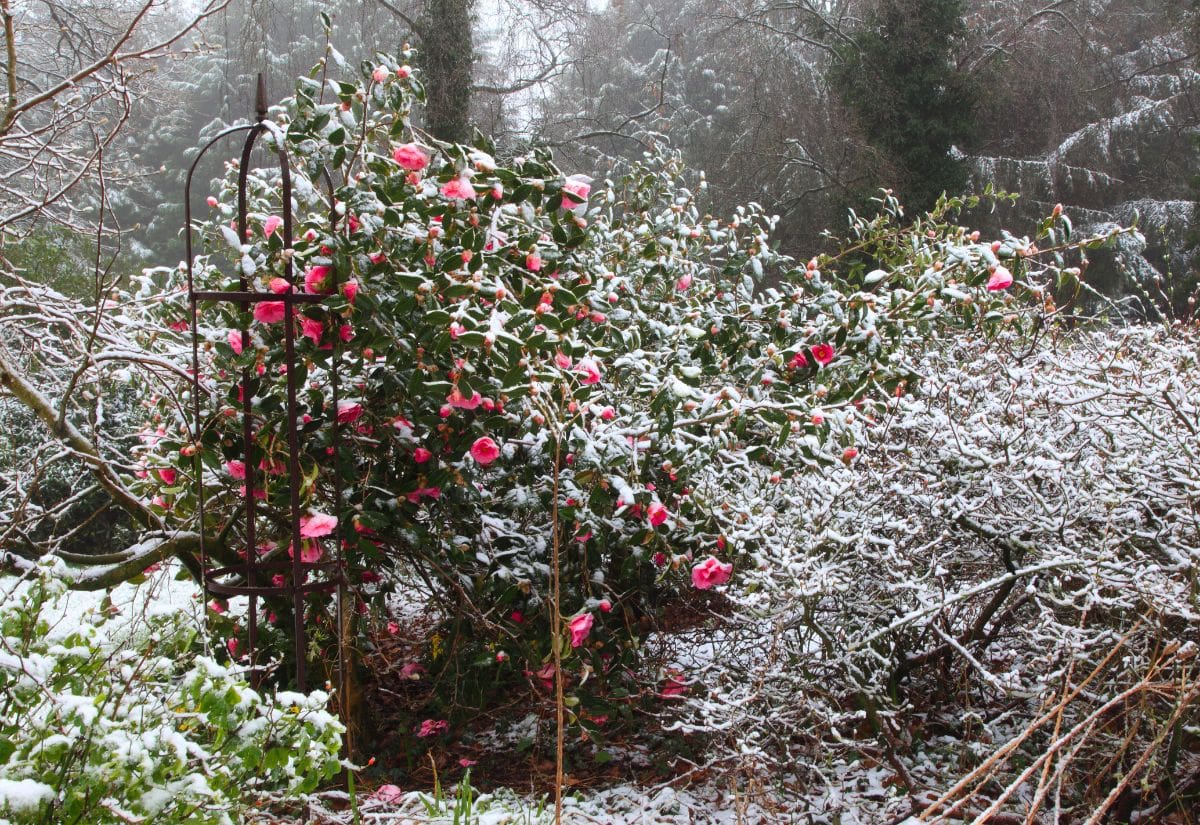
Winter gardens with no flowers are a sad sight, empty, barren and colorless – but they don’t need to be! Now that fall is here, it’s the perfect time to start to start prepping for a beautiful, bloom-filled winter garden. Imagine having stunning blooms brightening up those cold, rainy days! It’s all about putting in a bit of effort this fall and choosing plants that thrive in winter, blooming while others are dormant. But the key is to start now!
From planting bulbs and early-blooming plants, to feeding varieties about to flower, and adding pots to give your garden a winter zing, spend the next few weeks following these simple fall tasks. You’ll be amazed as your garden comes alive with vibrant colors, brightening up even the chilliest months of the year. Let’s get your garden ready for a colorful winter!
1: You Are Still in Time to Plant Winter Blooming Hellebores!
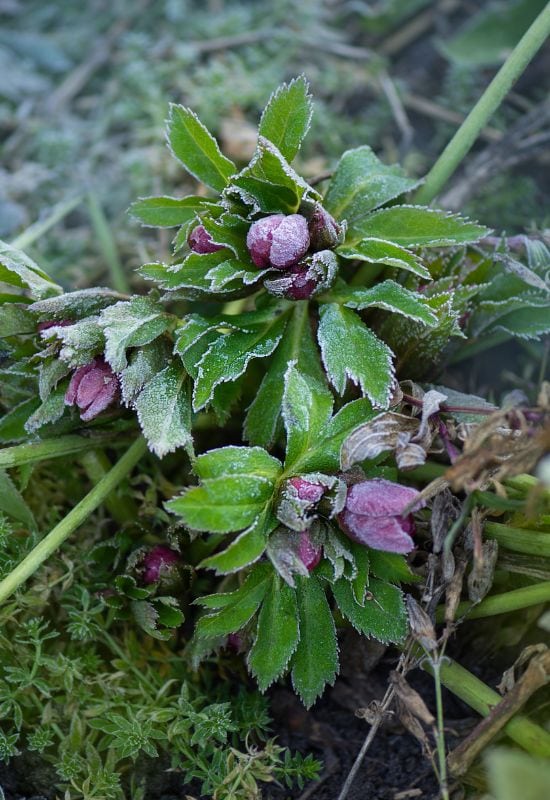
This is the best news I could ever give you: you can still plant winter blooming hellebores in fall! They may blossom a bit late, but they will still give you an amazing floral spectacle even under the snow!
And hellebores, with their impressive color range, can really go almost anywhere, many varieties even in full shade and those corners of your garden where very little grows.
Just a tip if you plant hellebores this late; mulch them well… It will really help these evergreen flowering perennials to settle in. And yes, you get winter foliage too, and quite striking and lush!
2: Treat Your Winter Flowering Camellias Well in Fall, and They Will Pay You Back with Great Blooms
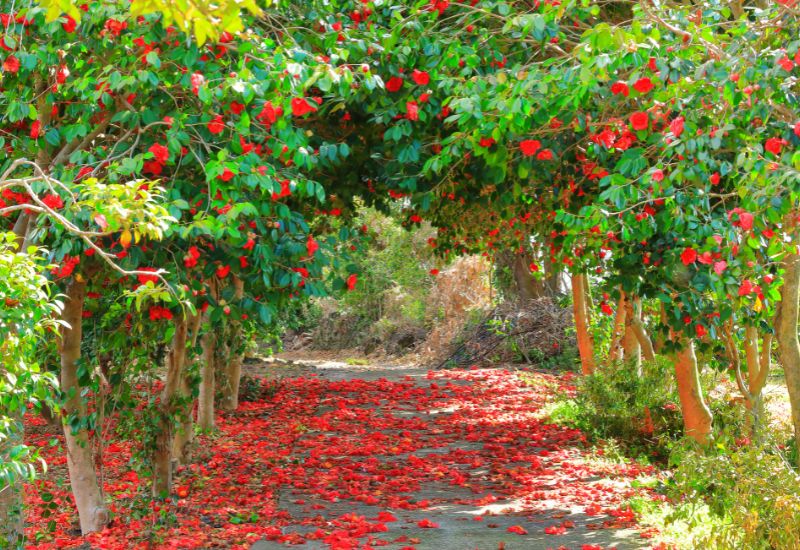
Many camellia varieties blossom in winter, but be very careful in fall. Despite what you may think, you must reduce watering in this season, for example; the weather is turning humid and wet, and these evergreen beauties are quite drought tolerant, while too much water can actually spoil their blooms.
Don’t let the soil dry up though, and don’t prune them now! On the other hand, a layer of mulch and a good spray with a natural fungicide (like neem oil, but also apple cider vinegar with camellias), will keep their foliage lustrous and protect the flower buds.
On the other hand, it is time to compost your camellias; they will need nutrients and energy to keep flowering throughout the cold season.
3: Give Your Bougainvillea a Trim Now: It Will Prompt it to Blossom in Winter!
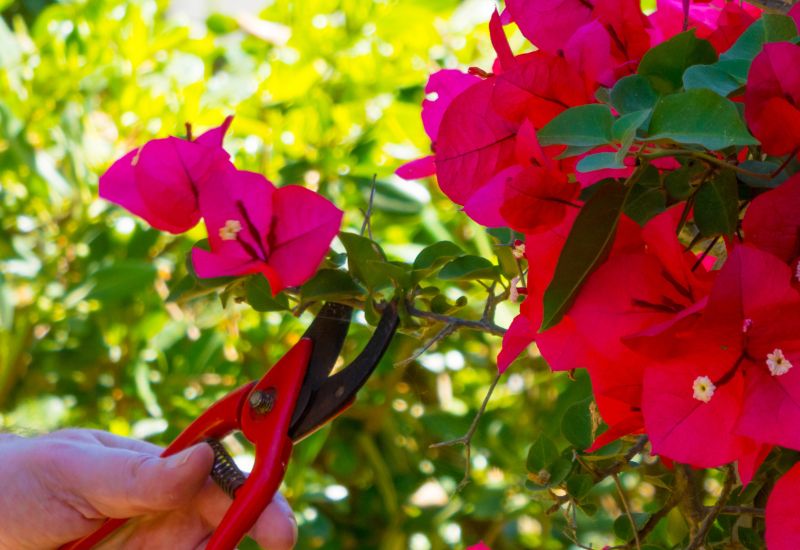
Bougainvilleas can blossom all year round, but they do it in waves, even if it is hard to see one of these shrubs without the odd single flower.
But if you want to encourage their blooms in winter, prune them now! Yes, these thorny beauties’ branches will flower profusely when they are cut back. New growth will soon fill with their brightly colored bracts, just as your garden is turning empty!
And then, it’s also a good time to thin them, because bougainvilleas can grow quite large and thick!
4: Fall Is the Best Time to Plant Winter Heath!
Yes, the best time to plant winter heath (Erica carnea) in your garden is between September and November, and it is almost ready to bloom! You will see it blossom by January, and it will continue to give you its sea of blossoms till April!
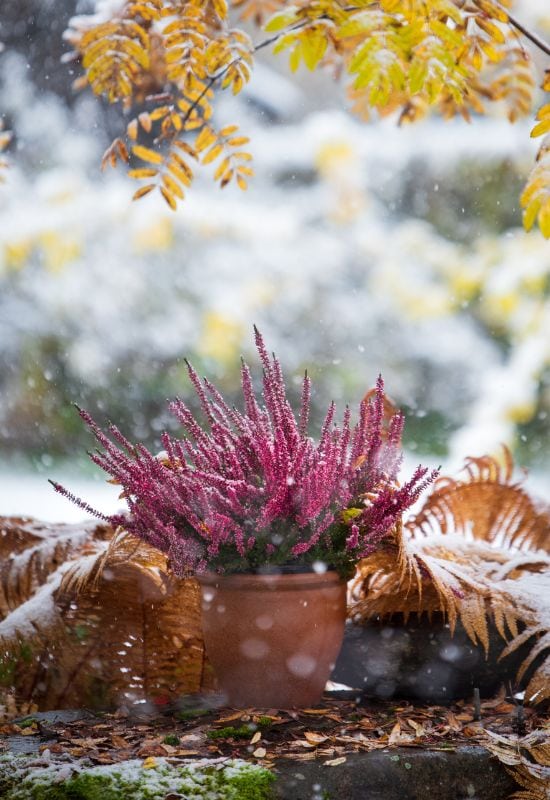
Cold hardy to USDA zone 5, winter heath will take a short time to flower, and if you mass plant it, your winter garden too can look like the Highlands of Scotland, with those mystic seas of pink and purple!
5: Do Not Prune Winter Blooming Jasmine Varieties!
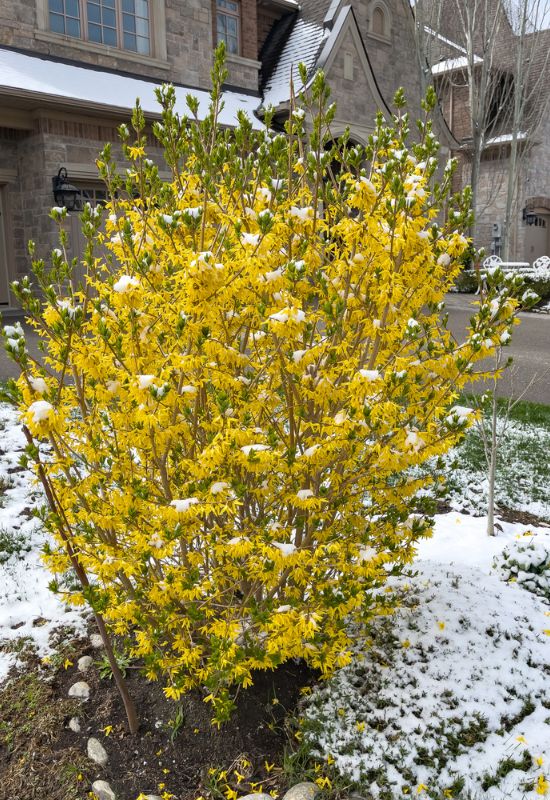
Unlike with bougainvillea, if you prune winter flowering varieties of jasmine in fall (even in summer!), you reduce their blooms. In fact, these plants take longer to develop blossoms, and they grow slower than vigorous bougainvillea shrubs. And they need time to grow new stems, or vines, on which they produce new flowers.
So, if you have any varieties like Jasminum officinale, Trachelospermum jasminoides, Jasminum nudiflorumand Jasminum polyanthum, don’t get your pruning shears out now, and wait till just after they have blossomed to give them a trim.
On the contrary, it is time to give them a helping hand with some compost.
6: Plant Winter Flowering Bulbs Now!
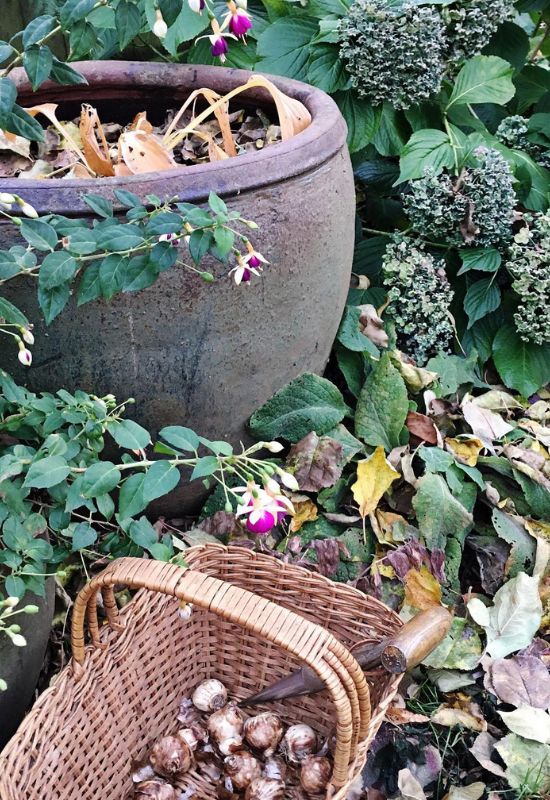
You are still just about in time to plant very early flowering bulbs, which will open their blossoms in late winter and early spring! Here’s a quick reminder of which bulbous perennials they are:
As you can see, with these bulbous perennials, you have plenty of choice of blossoms and colors for your late winter garden, in flower beds, containers, but also under shrubs and trees and in naturalized areas!
7: Wake Up Your Winter Flowering Cyclamens Now!
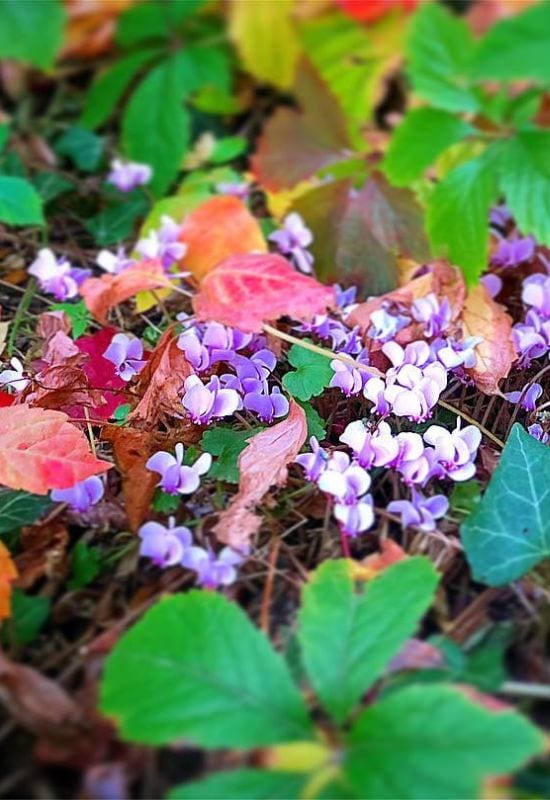
If you already have winter flowering cyclamen corms in your garden, it is time to wake them up! I need you need to help them get out of dormancy… And there are two things I suggest you do for this:
They need humidity now, and in their native areas, this is usually the wet season, but not everywhere. On the other hand, I hope you have not watered them in summer, when they are dormant, because too much water at this time can actually rot the corms.
Winter flowering cyclamen varieties are:
If you still don’t have them in your garden, as we said, you are still in time to plant them!
8: Plant Oregon Grape, Or Give Mahonia a Fall Boost for Long-Lasting Winter Blossoms
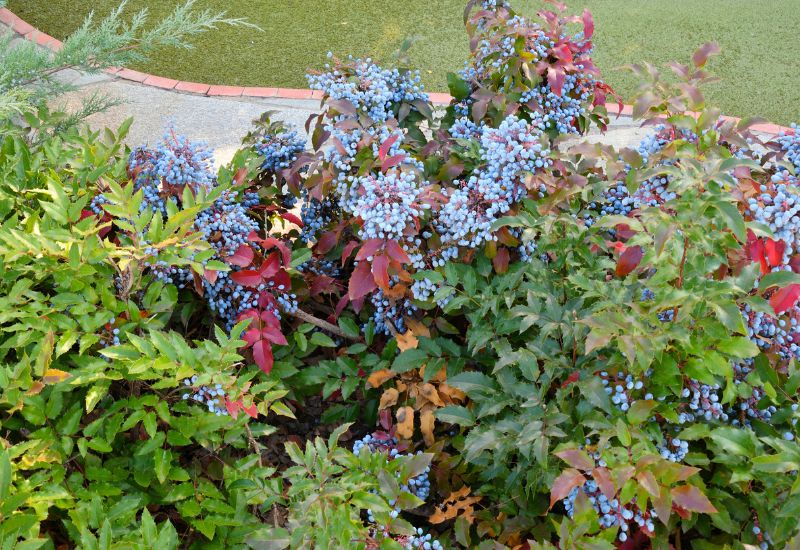
Also known by its scientific name (Mahonia aquifolium), Oregon grape has a rally colossal flowering season, from November to March! So, its generous clusters of brightly colored yellow blossoms can keep your garden alive and alight all through winter. And then, they are followed by edible blue purplish berries till late summer.
And the good news is… You are still in time to plant it! It is indeed a very strong, cold hardy and reliable shrub, with evergreen leaves to boot!
If you already have it, help it along with its flowering marathon; compost it now, and maybe give it a good mulching as well.
9: Time to Get Your Amaryllis Started, for Massive Winter Blooms!
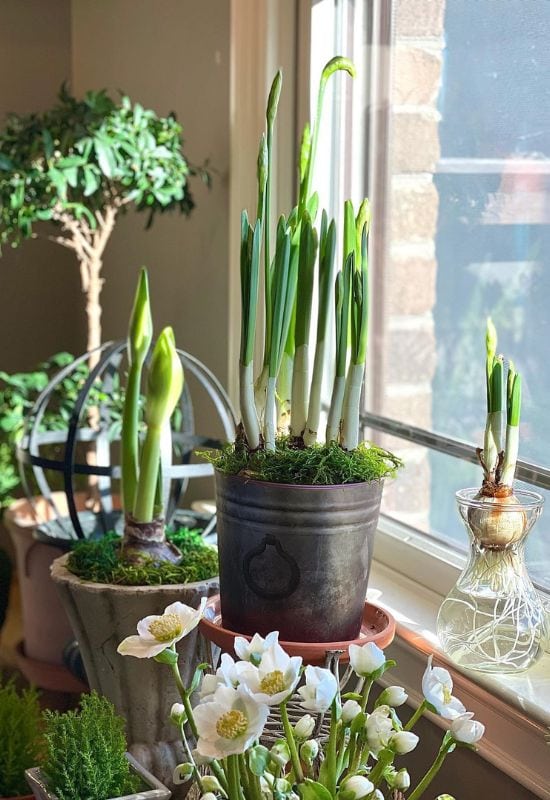
The colossal, even imposing and exotic amaryllis (Hippeastrum spp.) will bloom just around Christmas time if you plant it now! And if you are lucky and you live in USDA zones 8 and above (not even subtropical, but mild!) you can have it in your garden as well!
Still best in containers and in a sheltered area, amaryllis can do with a helping hand, and let me give you the trick of the trade…
Don’t plant it straight away!
Instead:
This will trigger its growth, even in cooler countries, and in 60 days, you will have massive tropical flowers blooming in your garden!
10: Compost and Mulch Your Daphne Shrubs, to Help Them Flower Through Winter!
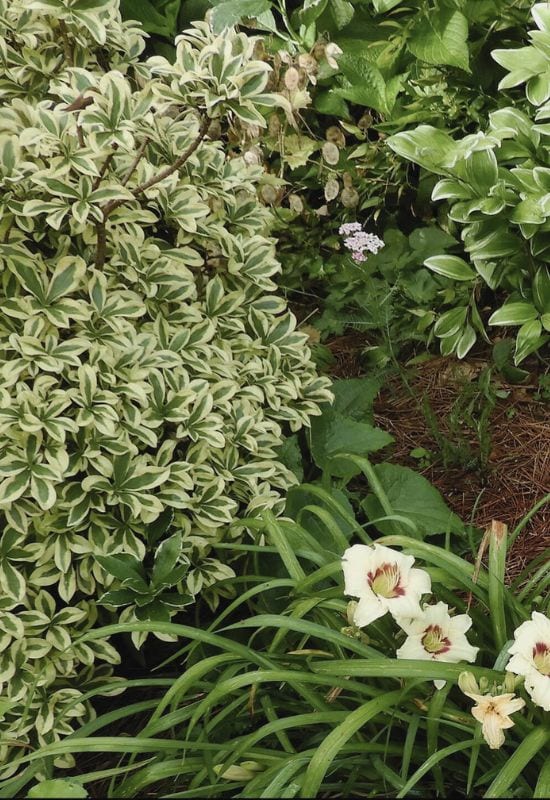
Daphne gives you clusters of waxy, fragrant, white to lavender flowers from mid winter to late spring! But while this semi evergreen shrub is cold hardy to USDA zone 4, it does not like cold feet!
So, if you want daphne to give you its best flower show, add compost to the soil and cover it with mulch now, and you will never regret it! This is particularly necessary in colder climates, where it may drop its leaves, but don’t worry, they will come back in early spring, glossy and lush.
But I lied to you, I have a final, bonus tip for you…
Extra Tip: Add Evergreen Foliage and Colorful Berries to Your Flowering Winter Garden!
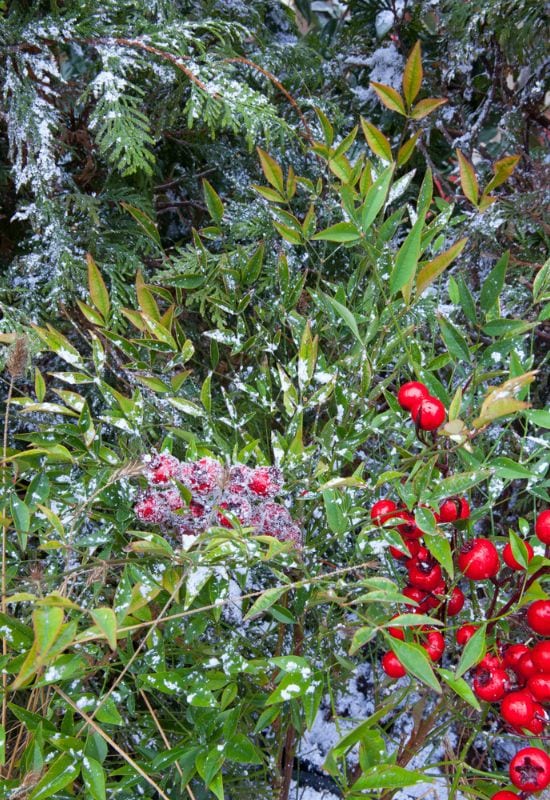
Now you know that you can keep your garden looking great, even exotic and full of flowers in winter as well… But all your work will be much enhanced if you give this out of season floral display a leafy (or / and colorful) frame.
You are still in time to plant cold hardy evergreen shrubs, or you can even leave them in their pots to fill in gaps and give you foliage. This could be a good idea in colder climates, where transplanting them now could give them stress.
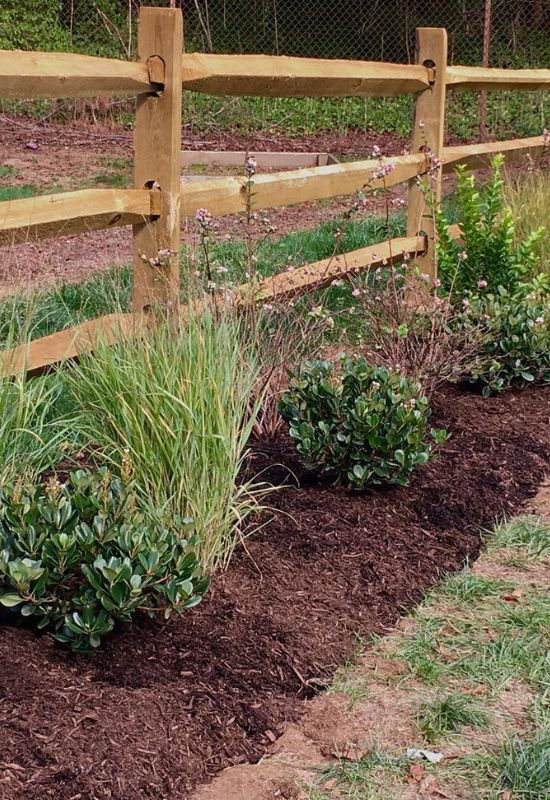
Then again, don’t forget to grow some plants with berries in this season, like winterberry (Ilex verticilata), holly (Ilex aquifolia), beautyberry (Callicarpa bonderi), spindle tree (Euonymus europaeus), snowberry (Symphoricarpos albus), variegated Japanese laurel (Aucuba japonica) etc. Not just for you and your winter garden but for little fluttering birds as well!

Written By
Adriano Bulla
After many years as an academic in London, Adriano Bulla became a writer, publishing books like A History of Gardening, Organic Gardening and Elements of Garden Design; he then decided to become a gardener, following his childhood dream, and has been following his dream writing and gardening professionally in Southern Europe, where he has specialized in new and innovative organic gardening fields and techniques, like permaculture, regenerative agriculture, food forests and hydroponics.
